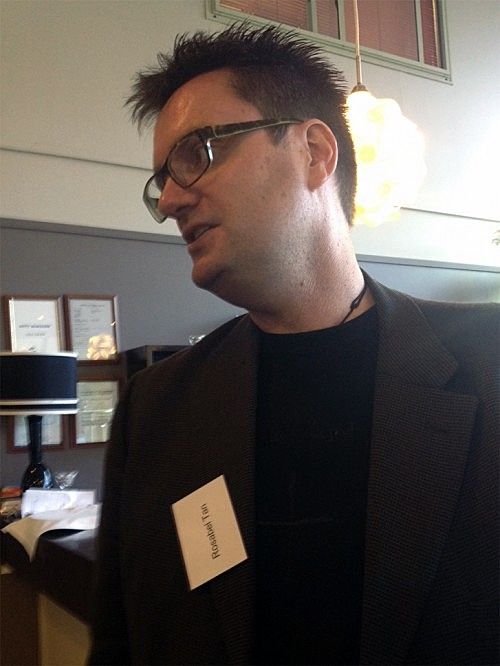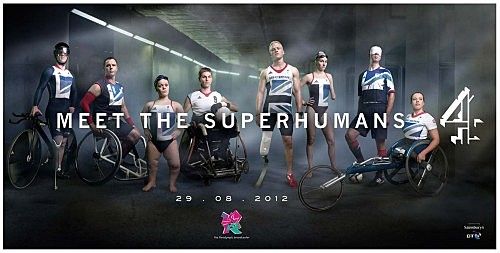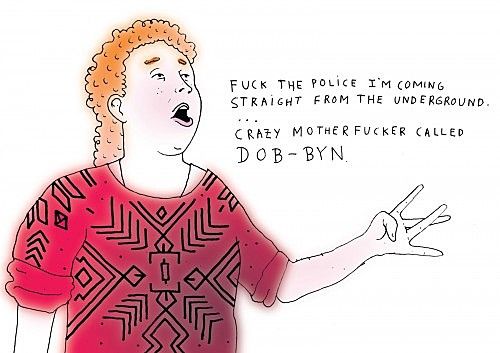Internet Histories | 3 September
Personal landscapes, pen reviews, poverty lines, political animal crackers, and the definitive illustrated NZ music hall of fame.
This fortnight:
Personal landscapes | pretty chairs | poverty lines | political animal crackers
illustrated NZ music hall of fame | a whole lotta' Eastwood
Joe
If you haven’t yet seen Clint Eastwood’s 12 minute Republican National Convention unfold either live on the Internet or vicariously on Twitter, do so here. If you’re pressed for time the Washington Post’s caption elegantly captures it all.
Really, it’s hard to think of a more apt though absurd image for the Republican/Tea Party in 2012 than a senior citizen riffing to a chair with an imaginary invisible black man on it about society’s evils. Eastwood’s turn feels like some elaborate Brechtian set-up, though as a characteristically in-form Roger Ebert points out on his journal, the star’s performance was both genuine, largely ad-libbed, and thwarted by its requirement to tow some vague party-line. He also gets that the whole thing is ultimately a dramatic strategic miscalculation – the campaign managers struggling to extract some ancient .zip file of personality from beneath Mitt Romney’s dispassionate exterior should have known better than to overshadow him with any celebrity address, stage-managed or not:
“Two days later, not a word of Romney's acceptance speech has entered the public discourse. But Eastwood's dialog with a chair has entered forever into political legend, and it's amusing to read reports that his viewers from around the world were mystified. Iranian Facebook pages "treated it with suspicious befuddlement," an Atlantic blog reports, and in China the speech is being used to teach English on a web site. The headline says, "Gelivable English Langauge Teaching: Exchange Cooperation Model Innovation," says the Atlantic's Max Fisher, who adds: "I don't know what that means, either."
In other RNC post-mortem fallout, here’s a tremendous moment in a roundtable discussion on NBC about race, income redistribution and welfare. Host Melissa Harris-Perry, faced with yet another platitude about how entrepreneurs deserve the fruits of their spoils because they took ‘risk’, launches into a moment that’s blistering and articulate and kind:
“What is riskier than living poor in America? Seriously! What in the world is riskier than being a poor person in America? I live in a neighborhood where people are shot on my street corner. I live in a neighborhood where people have to figure out how to get their kid into school because maybe it will be a good school and maybe it won’t. I am sick of the idea that being wealthy is risky. No. There is a huge safety net that whenever you fail will catch you and catch you and catch you. Being poor is what is risky. We have to create a safety net for poor people. And when we won’t, because they happen to look different from us, it is the pervasive ugliness.”
The whole ten-minute discussion is worth a watch.
"If you hang out with industrial designers,” Colin McSwiggen warns on The Jacobin, “one thing you may have noticed is that they’re really into chairs”. Two of my flatmates actually come from an industrial design background (though apart from being kind of into sitting down, they’re not really that hard for “beautiful, terrible furniture for rich people”). Anyway, this is a great and lunatic flight of fancy – McSwiggen appears to offer just enough orthopedic and historical knowledge to make you take him seriously, but it also feels a little bit like a good and imaginative writer was dared to declare open slather on chairs and gleefully took up the cudgel. I got up thrice during reading this because I needed to take a psychosomatic walk. Can you outdo me?
Here’s an eminently readable piece on the Smithsonian’s Past Imperfect blog (which is, surely, a euphemism for ‘Horrible Histories’ and I don’t think I’ve ever met anyone who didn’t love those). Titled ‘Quite Likely The Worst Job Ever’, it doesn’t disappoint while also shining a much-needed light on the etymology of the word ‘tosh’.
Finally, I didn’t feel that sad about Neil Armstrong’s passing (because what can ever be sad about a life well lived?), but I spent most of the ages of 8, 9 and 10 obsessed with the Apollo landings, and so I thought the above was a rather lovely artefact.
Rosabel
I know we’re calling it internet histories, but one of the highlights of my weekend has been something that's not available online: This month’s Metro, featuring Paul Litterick’s brilliant takedown of Jim Flynn’s book, Fate and Philosophy. It’s scathing but fair, and a fine example of good reviewing:
This is a book about life’s great questions. It says so on the cover (which, for no apparent reason, is illustrated with a photograph of a woman ascending a staircase while wearing a pair of ill-fitting angel’s wings: on the back is a photograph of a field). Life’s great questions, in case you were wondering, are:
What is good?
What is possible?
What exists?
These questions have bothered philosophers for centuries but, happily, Professor Flynn has answered them all to his own satisfaction. Having solved the problems of history and literature, he has now solved the problems of philosophy. He has also written a slim volume of poetry.
I have also enjoyed in the privacy of my open-plan office and under the vague guise of research:
Maya Singh’s personal landscapes,
Stefen Chow's country-specific representations of what households living below the poverty line can afford to eat on a daily basis,
and Julian Germain’s photographs of classrooms around the world.
Finally, I was struck today by the portrait of the police department in Sarah Stillman’s piece in The New Yorker on confidential informants. She focuses on two cases of young offenders being placed in high-risk situations – one is Rachel Hoffman, pictured above, a 23-year old who was shot five times with the very gun she’d been sent by police to buy. It employs the kind of one-sided narrative that tugs lazily at your heartstrings, but lurking at the fringe is a sinister lack of regulation surrounding the use of informants and the structural policies which encourage this:
Mitchell McLean has come to see his son’s death as the result of an equally cynical and utilitarian calculation. “The cops, they get federal funding by the number of arrests they make—to get the money, you need the numbers,” he explained, alluding to, among other things, asset-forfeiture laws that allow police departments to keep a hefty portion of cash and other resources seized during drug busts. “It’s a commercial enterprise,” he went on, citing a view shared by many legal scholars and policy critics. “That’s how they pay for their vans, for their prosecutors—they get money from the war on drugs. They put zero dent in the supply. They just focus on small-town, small-time arrests.”
Matt
It’s been a great week to be interested in politics, especially the politics of the absurd.
The Republican national convention was a partial success: you feel the antics won’t shift a lot of votes, but to outsiders the circus seemed to involve not so much political animals as political animal crackers. There was the incident with two attendees throwing peanuts at a black CNN camera operator, telling her “This is how we feed the animals!” A poll last week suggested Mitt Romney had approximately 0% support among black voters, and incidents like this one make that number incredibly plausible. Then there was the bit where an old white man argued with imaginary Barack Obama for twelve minutes. At 82, if I can speak for that long without needing a bathroom break, I too would not care overly whether I’m addressing a coffee table, a painted vase, or a room of bigots.
Closer to home, our Prime Minister won a tree-planting competition. Only it wasn’t a competition.
When an official suggested Key could vote off the journalists like a survivor programme, he seemed to like the idea.
"I'm not going to vote them off. I'm going to bury them. Six feet under they'll never leave."
A friend said he was halfway through before needing to check to see if the article was written by Steve Braunius, but I was getting more an Armando Iannucci vibe.
Speaking of Brauny, he kindly invited the Pantograph Punch kids to Hamilton last Friday for the triannual Wintec Press Club lunch. Greg King – defence lawyer for Ewen MacDonald, Clayton Weatherston and approximately one million less famous defendants – gave a fascinating talk on subjects spanning from some of his recent work to the role of the media in court reporting. Gold disco pants were never quite mentioned explicitly. Everyone became fabulously drunk in deepest Hamilton, and as we packed into David Farrier’s tiny, shiny car for the drive north, we were nearly too sozzled to remain composed in the presence of David Slack and Steve Braunias. In fact we were too sozzled and spoke of accidental handjobs and getting pissed on with almost immediate regret. For an informative, fun, and debauched Friday: Steve, we salute you.
In 2010, Craig Venter created artificial life in a laboratory. He used computers to program an organism’s genetic sequence, like a computer code, then ‘compiled’ it by chemically creating the A, C, T and G nucleobases that form the basis of DNA. The nucleobases assembled in the right order, he injected the soupy mix into an empty cell membrane, and it began to live. Life from chemicals. It was… kind of a big deal.
It leads to interesting ethical problems. By interesting, I don’t actually mean ‘boring’, like “Is it right to play God?” I mean questions that make sense. A group recently sequenced a near-human creature called a Denisovan. A close reading of the Wired article I just linked to reveals some problematic language, right from the first sentence: “…an archaic Siberian girl…” That she’s described as a ‘girl’ (rather than the more neutral ‘female’) implies that we’re extending the warm cloak of shared humanity to envelop our extinct cousin. The modifier ‘archaic’ implies that cloak is full of draughty holes.
The fact her genome is so fully sequenced means that in a few years – a decade or two at most – it will be possible to do as Venter did with that far simpler organism two years ago, and inject her DNA into a cell. An egg, say. A willing homo sap mum could then give birth, and in a single stroke Denisovans go from extinct to extant, the term ‘sub-human’ becomes something more than a pejorative, and whoever owns the copyright on The Island of Doctor Moreau quickly becomes wildly rich.
In 2005, the UN passed a non-binding convention prohibiting human cloning in all forms ‘contrary to human dignity’… whatever that means. Even if it were illegal to clone humans – and it’s not, exactly – is the Denisovan a human? What about Neanderthal? Not taxonomically, but if these creatures are cognitively indistinguishable from us (and the jury’s out on that one too), the line between us and them becomes even more blurry than it is already. It’s an existential argument waiting to happen, a question that speaks to our presumed role not only as apex predators, but also apex reasoners, and it will be resolved (by which I mean bitterly disputed) within our lifetimes.
The Olympics is a fascinating snapshot that captures the non-quite global zeitgeist every four years. This year: women competing in every sport! Just as intriguing, the Paralympics are getting an unusual amount of actual attention, rather than lip service. Possibly it’s to do with the marketing, but surely it’s partially the athletes themselves: they’re going from mechanically supported to mechanically augmented. Well, that’s the argument. Channel 4* released a stunning video for the games, and that plus the perennial (but undoubtedly worthwhile) entertainment-versus-exploitation discussion can be found here.
BIC have released a line of pens ‘for her’. If this boggles your mind, you aren’t alone: check out the product reviews on Amazon, and may God save us all.
Hayden
While trying to scrape together the best things I'd seen online over the past couple of weeks, I realised the only thing I've actually been doing is hyping and listening to my friend Jeremy's song. It was on theaudience.co.nz, an online popularity contest that gives away a $10,000 New Zealand on Air grant each month. Unfortunately he didn't quite make it to number one and has since pulled the song down.
But in the process of promoting the song - which I'm sure can feel a bit like begging at times - Jerry has compiled what is quite possibly the most comprehensive illustrated NZ Music Hall of Fame ever. Excitingly, the experience has motivated him to draw more often. Look out for his forthcoming political cartoon series.
Following up on something I mentioned last time on IH, having garnered a fair amount of interest at launch, Bernard Hickey's Journalism.org.nz now has a proposed membership tier structure for potential members to give feedback on. It looks as if the site itself won't be set behind a paywall, but will work on a member-donor model. There are three proposed tiers, starting at $9 per month for the most basic membership (which grants commenting rights and limited editorial forum input). All in all it seems pretty reasonable. I'm tempted by the $39 a month 'Founding Member' tier which includes "Invitations to the quarterly editorial board meeting as a general member". If you've got a spare $19,000 to sink on public interest journalism you could be a lifetime founding member.
* An earlier version of this page suggested the Paralympics video was produced by the BBC rather than Channel 4.















